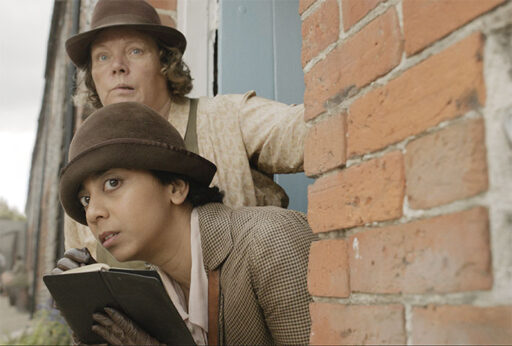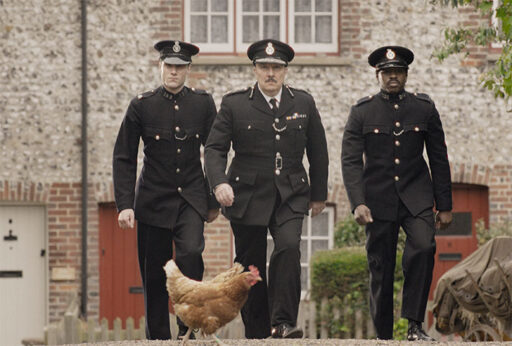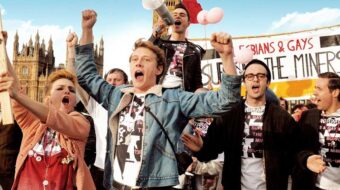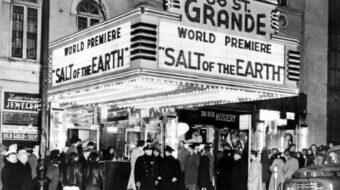
The profanity-laden new film Wicked Little Letters just about tops the list of any films I can recall for the most swear words per minute. Child advisory recommended!
Yet for those who enjoy a rollicking feminist mystery-political-comedy that is in fact based on a true story, this may be your ticket for a fun adult outing at the movies.
It all takes place in the seaside town of Littlehampton, Sussex, in the early 1920s. The war is barely over and Britain is nursing its wounds, trying to get back to normal. British boys are still over in France in the service—and many more are buried in its Flanders Fields.
But normal has changed. Women have been working in wartime production, and now they’ve been laid off and told to return to their kitchens. They’ve gained a new strut in their step as we head into the Flapper Age.

In many ways the film is really about women’s emancipation, about gaining the freedom to work, to move about in society, to occupy professions previously barred to them, to vote (it would not be until 1928 that women achieved full voting rights). It also meant climbing out from under a strict Christian patriarchy, headed by the King of England, and filtering down through the church and its various auxiliary movements right down to the level of every strict family household where father knows best and commands his wife and daughters to obey unquestioningly.
The film focuses on a tight neighborhood where just about everybody knows everybody else’s business. The cloyingly devout, respectable Christian Edith Swan (Olivia Colman), unmarried, still lives at home under the domineering thumb of her controlling father Edward (Timothy Spall), and gently subservient mother Victoria (Gemma Jones). Edith did have her suitors years back, but her father thwarted them, eager to have his daughter single and available for caretaking duties as he and his wife grew old.
Right next door, on the other side of an adjoining wall, the Swans acquire some new neighbors: the lusty, bawdy, foul-mouthed Irishwoman Rose Gooding (Jessie Buckley), claiming to be a war widow, her live-in Afro-British mate Bill (Malachi Kirby), and her little daughter Nancy (Alisha Weir). Rose is Emily’s polar opposite, a total feminist (maybe she doesn’t even know the word) in the way she comports herself in public, taking guff from no one, a mouth on her that few Brits have ever encountered.

All of a sudden Emily starts receiving a slew of anonymous crude letters insulting her with shocking profanities. They sound very much as though they could be coming from Rose, and in a series of cascading events, she is arrested, jailed (or should I say gaoled?), charged, and tried in court. The local police, portrayed as a bunch of Keystone Cops, are complicit in the accusation—with the lone exception of Woman Police Officer Gladys Moss (Anjana Vasan), who is skeptical of her colleagues’ shoddy, quick-to-judge procedural methods. What about motive? How about the handwriting? What about the letters metastasizing to other members of the community with no special connection to Rose?
Jonny (Jonathan Huw) Sweet’s screenplay, expertly directed by Thea Sharrock, plays on the modalities of the comic political and in my view, for what it’s worth, aims at a contemporary audience of moviegoers steeped in American film. The Brits have their own rich vocabulary of vulgarities, but from what I heard, all the ones used are the common ones found in American slang. The classic British curse word “bloody” did not appear at all, so far as I could tell (though I admit that between the heavy British accents and the audience laughter, I did not pick up every word).
In another way, I think, the film strives for contemporaneity that exceeds the realistic (though I would hardly call WLL “realistic”). In the UK of the 1920s there certainly were people of color, mostly immigrants from Britain’s far-flung colonial outposts in the Caribbean, Africa, and Asia. There’s even an Afro-British judge in the film, in charge of the trial, which stretches the imagination. I don’t object, of course: It can be justified as simply color-neutral casting welcome and necessary for our age, in the same way those popular British series, like Bridgerton, mix it up just to get folks thinking.
But more importantly, like a modern-day Gilbert and Sullivan, Sweet skewers every institution that underpins British respectability—family, patriarchy, the sanctity of marriage, police, the racially, ethnically, and gender-biased legal system, the cruelty of bail and the harsh prison system, the press and the manufacture of hysteria and public opinion.
Crisp cinematography by Ben Davis and a delightful musical score by Isobel Waller-Bridge keep the plot boiling until it all sorts out in the end. Even the person responsible for the letters has their reasons and is really not such a villain after all.
The trailer can be viewed here.












Comments